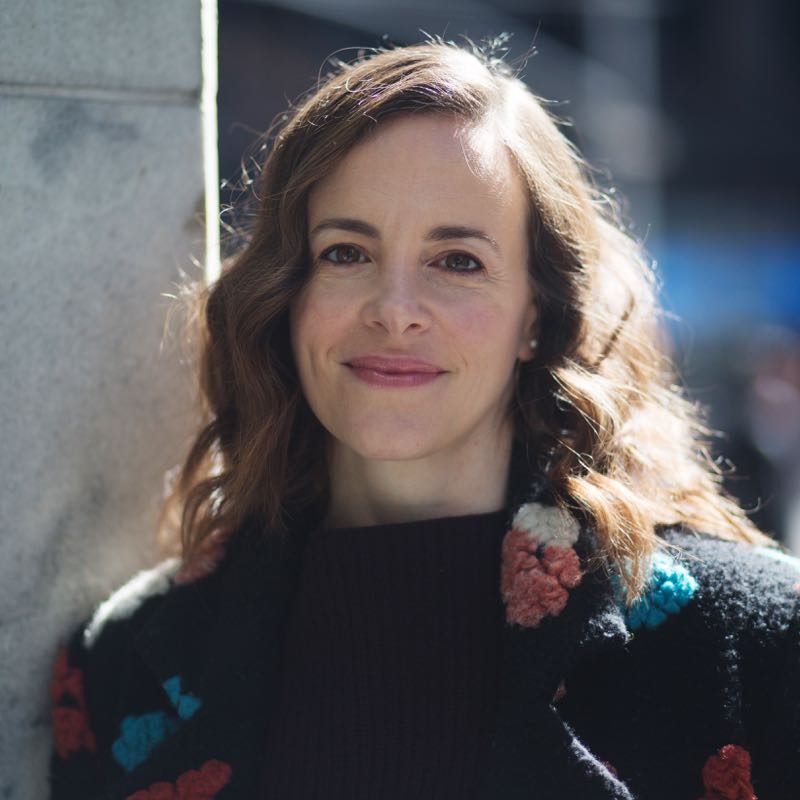An Interview with Maria Dizzia
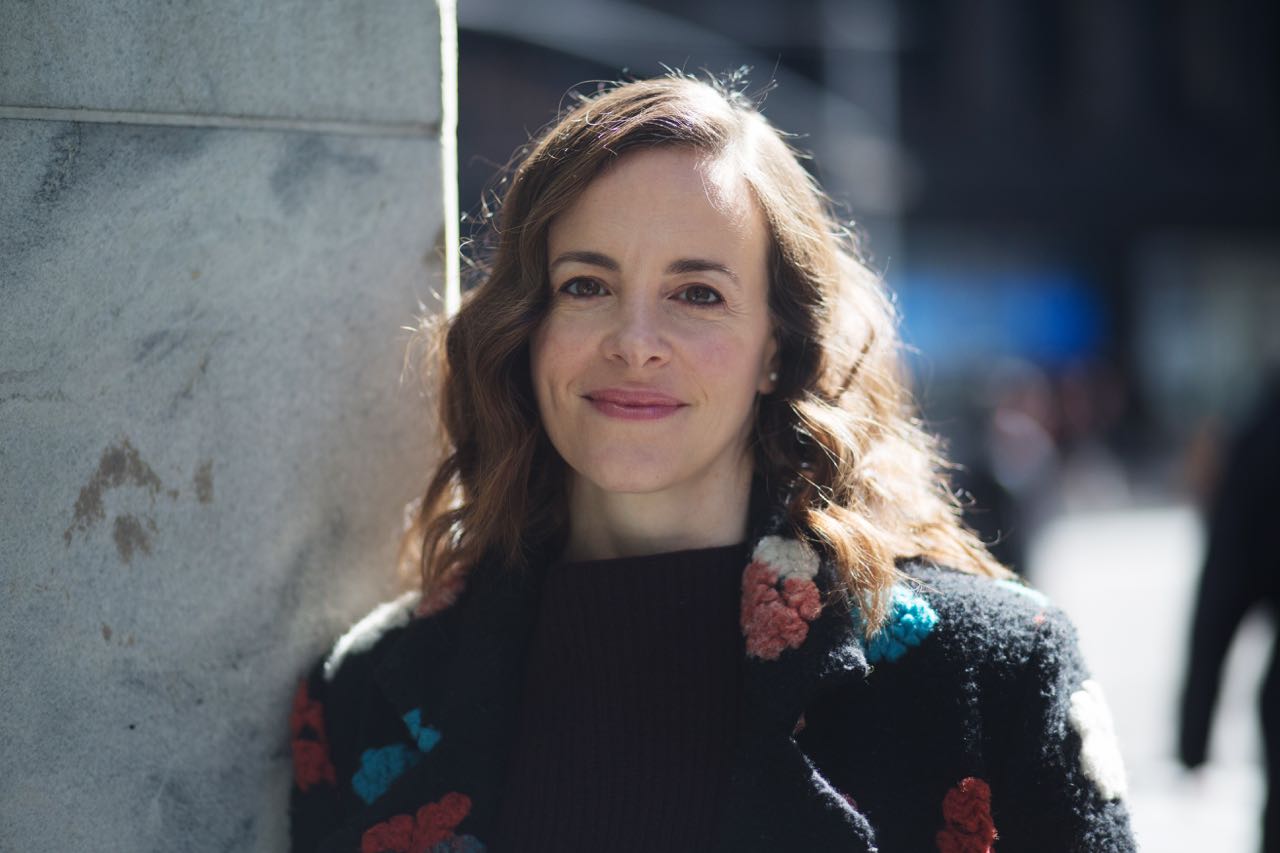
Written by Victoria Myers
Photography by Tess Mayer
March 21st, 2017
It seems besides the point to mention that during the first week of previews of If I Forget, Maria Dizzia posted a photo of Barbra Streisand in The Owl and the Pussycat on her Instagram. Yet in some ways it is exactly the point. For Maria Dizzia is somewhat of an iconoclast; a genuine leading lady of the theatre in an era when non-musical roles often go to movie stars, who has delivered a diverse range of performances that all have complexity and an edge of surprising subversiveness. She played an American expat dealing with a troubled marriage in Paris in Amy Hertzog’s Belleville, and she played at two poles of Sarah Ruhl’s canon in Eurydice and In The Next Room (or the Vibrator Play), which earned her a Tony nomination. Duality again featured in Cradle and All by Daniel Goldfarb, where in one act she played an actress who wanted a child and in the next an exhausted mother of an 11-month-old. Currently, she plays ‘Sharon’ in Steven Levenson’s If I Forget at the Roundabout, which concerns a Jewish family wrestling with its past on both a micro and macro level. We recently sat down with her to discuss her process and the nature of duality in acting.
At this moment, what do you find to be the most intriguing thing about Sharon, the character you’re playing in If I Forget?
I think I found out through the performances that she is the antagonist. When we were working on it, it really felt like there were three protagonists in the three siblings. But realizing that the way the audience responds to Sharon is that she’s really the person who’s getting in the way of other people’s needs and plans. I think that it’s made me feel even more protective of her and feel more like I want her story to be told and to be heard. It’s made me more sympathetic to Sharon, also. I started out on Sharon’s side, but now I feel even more her champion because I see how she’s seen as so contrary and irritable to other people, and I really want them to stick it out and see the ways in which she’s suffering and the way in which she has arrested her own life in some way. In order to take care of her family, she hasn’t moved forward. There kind of isn’t a present for Sharon, there’s really only a past, and the present cracks open for her at the end. But it’s so troubled for her. Those are the things I’m thinking about now.
Are there any particular challenges to playing a character like that, who is kind of reacting to things in the past more than necessarily always being in the present?
I think that maybe the challenge is that the things she’s reacting to in the present are repetitions of hurts that already happened in the past. I think that’s true for most characters. But sometimes I think great plays are always the new event, or finally the snowballing of all those things that someone has been quiet about their whole life. The play is about the moment when they can’t take it anymore. I think that, little by little, who Sharon is becomes clear. I think she seems a little hair-trigger early on in the play, but as you learn more about her you realize that she carries with her a lot of old resentments for what happened before the play started. So she’s very sensitive to the slights that she feels during the play. I think a lot of times in plays that you have to invent a backstory for your character and find out why they are so sensitive about this moment, and I think something that’s nice about Sharon is I know why. I know a lot of what her past is. A lot of it is in the play already, and so I know why she feels so distant from her siblings and why she’s so worried about her future
With this play, were there any challenges with having an offstage character who is so significant, especially in relation to your character?
I have a lot of offstage people. For all of us, it’s our mother, who has passed away a year before the play started. There’s Abigail, who we love, who is unraveling in Jerusalem, and Rodrigo, my partner, who you also don’t see. I think maybe that was one of the most challenging things in rehearsal: making sure that all those people were really clear. I think something that’s really surprising is when you have a lot of offstage people, you can get a lot of clarity early on, you can daydream about those people, or do really concrete research and find images of people that move you and that you can use. Early on you can really get some clarity. What happens is, in [performing] a play, the play itself is so fluid that when you have an actor right there in front of you, you can respond to them in different ways as the play progresses. And sometimes what happens is the clarity that you thought you had early on becomes stale. So I actually think what’s important about those offstage people is to try to keep them as fluid as the people who are onstage, and to feel like if a different face for Rodrigo pops into my head suddenly, or if on the day it seems like there’s another quality of my mother that I hadn’t thought about before that seems important, to let that happen and not feel like I have to stick to some old idea of who those people were. [The character of] Abby changes a lot for me. I think also in part because that character is someone I’ve known since she was born, and so she comes to me at different ages in the play, and even though we’re always talking about her as a 19-year-old girl, she becomes real for me at a lot of different ages, and I’ve become comfortable with that.
Is there an extra challenge in this too, that you have characters who not only are people, but also in a way are supposed to be representing ideas?
I think I let go of that really fast. When I first read a play and I’m discovering what the play is about, I may see things as being symbolic and see things as foils for each other, but after I get a handle on what is the story being told and where does my character fit into it, I really let it go. I’ve done it so much that I don’t even think that anybody’s an idea; I really think of everybody as a person. In a good way, I feel like I lose sight of that, of my dramaturg head. I just concentrate on everything in terms of the action of the play and what my character needs and who’s on her side and who’s preventing her from getting it.
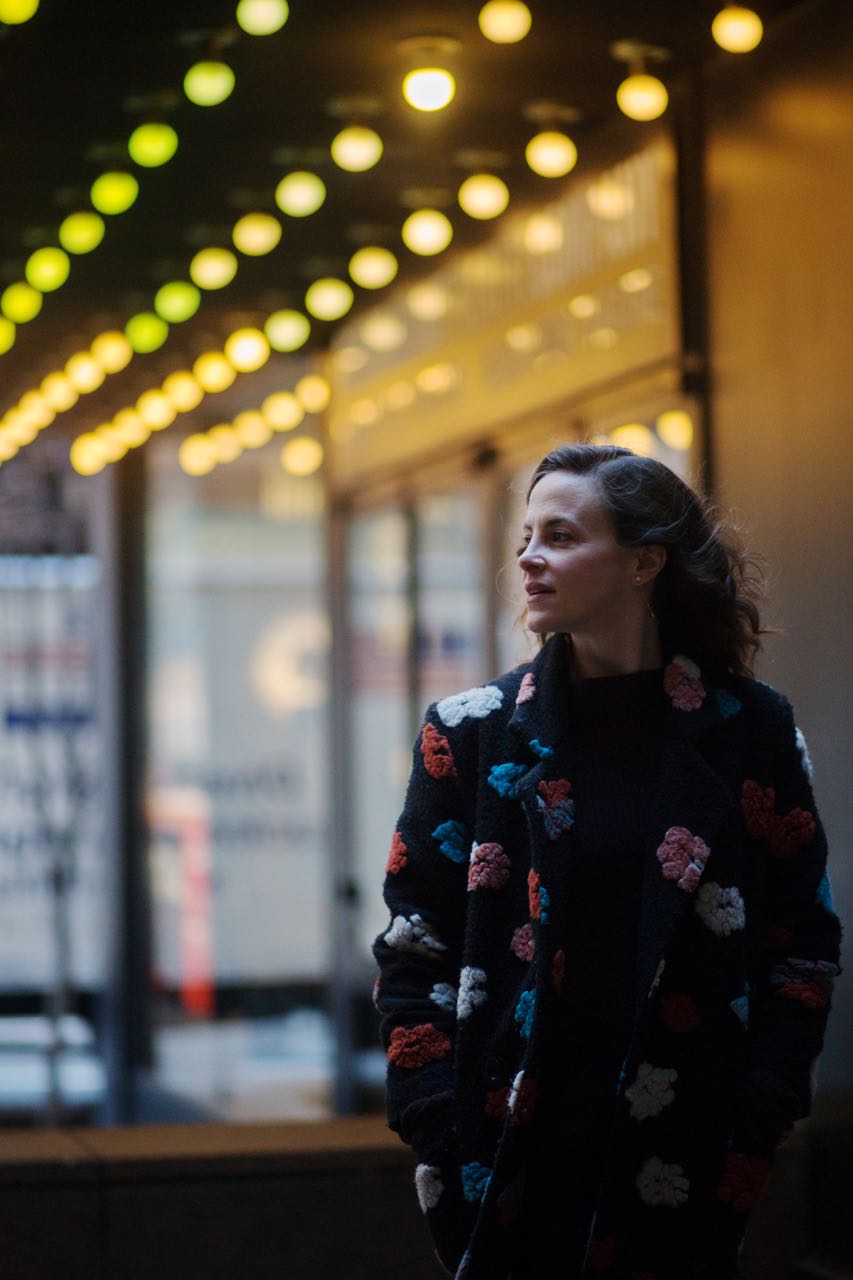
I wanted to ask you more about your process. You just touched on how you look at a script. Do you like to come into rehearsal with a lot prepared?
I really do. I didn’t used to. I used to just read through the play, and then really wanted to discover everything in the room with the people and the director, but I found that even though the idea behind that is that it would be freeing, I was actually really straitjacketed by it. The director does a huge amount of preparation in order to come into the room, and the playwright’s been living with the play for however many years, and I always felt at a deficit. I felt really unsure of myself and I didn’t trust my instincts because I wasn’t quite sure what they were based on.
People always say to actors, “Let it go,” and my thought is always, “Let what go?” I think that you actually have to do a lot of work so you can let it go, and if you don’t, I think you get really confused about what it is that you’re supposed to be letting go, and it feels like you’re letting go of your intuition or you’re letting go of your impressions or your feelings about something.
So I do a lot. I write down all of the given circumstances of the play. And write down all of the given circumstances for the different characters, and make an emotional map and figure out who are the people who have made the biggest impression on my [character’s] life, and what are my feelings about them. That stuff. And then after you do all that work, be willing to let it go. When you actually meet the actor who’s playing your father or who’s playing your sister, let them inform it and not feel married to anything. It’s really exciting, I think, to go into a play with your preconceptions of it, and then to be surprised in the moment and to find that someone who you thought was going to be your ally in something turns their back on you. There’s something that feels really exciting and truthful about those discoveries.
Do you find there are any particular challenges with doing something that’s contemporary and might, on a surface level, be closer to you than some of the other pieces you’ve done? Because I feel like with actors, the expectation always is if it’s a period piece, it must be harder.
I think it’s all hard. I did a lot of Shakespeare when I was first starting out, and I do think that Shakespeare work has informed a lot of the contemporary plays that I do, because one of the things that I really liked in Shakespeare plays was the way that the emotion is in the language. I really appreciated how you start a monologue and trust it, and it takes you on this ride, and the vowels and the consonants really have this effect on you emotionally. You feel that the author is really working this spell on you, and you can have these feelings that take you by surprise. That’s something that I really look for in contemporary work, the same thing about how the writers have created in the language—in the words that they’ve chosen for the characters to say—how the emotion is contained in the syntax and language of the play. I don’t think I feel a difference in hardness between classical stuff and contemporary stuff. I wonder if what other people are responding to is the hardest thing to do, [which] is when someone says, “This character is just like you.” That’s the hard thing. And that also happened to me in classical stuff. I always remember when I did She Stoops to Conquer, someone told me, “She’s just like you,” and I thought, “What on earth is that?” I think that’s when things get hard. I feel like it’s a law of the universe that all you see is difference. We really don’t see what is the same. I think that’s how vision works. That’s how patterns are. Things have to be different. So when something is the same as you, you can’t see it. You can’t see the forest through the trees. I really struggled with parts when people told me, “She’s just like you.” So now I always start with the differences. Because the stuff that’s the same, I can’t help it, it’s going come out. So when I read a play and I’m looking at the character, the thing that I look for first is how are they different from me, and how can I make those differences my own. The similarities I don’t even have to think about it. It’s just going to happen intuitively. The similarities are just going to come out because I’m only working with my experience, so I’m forced to impose it on whatever I do.
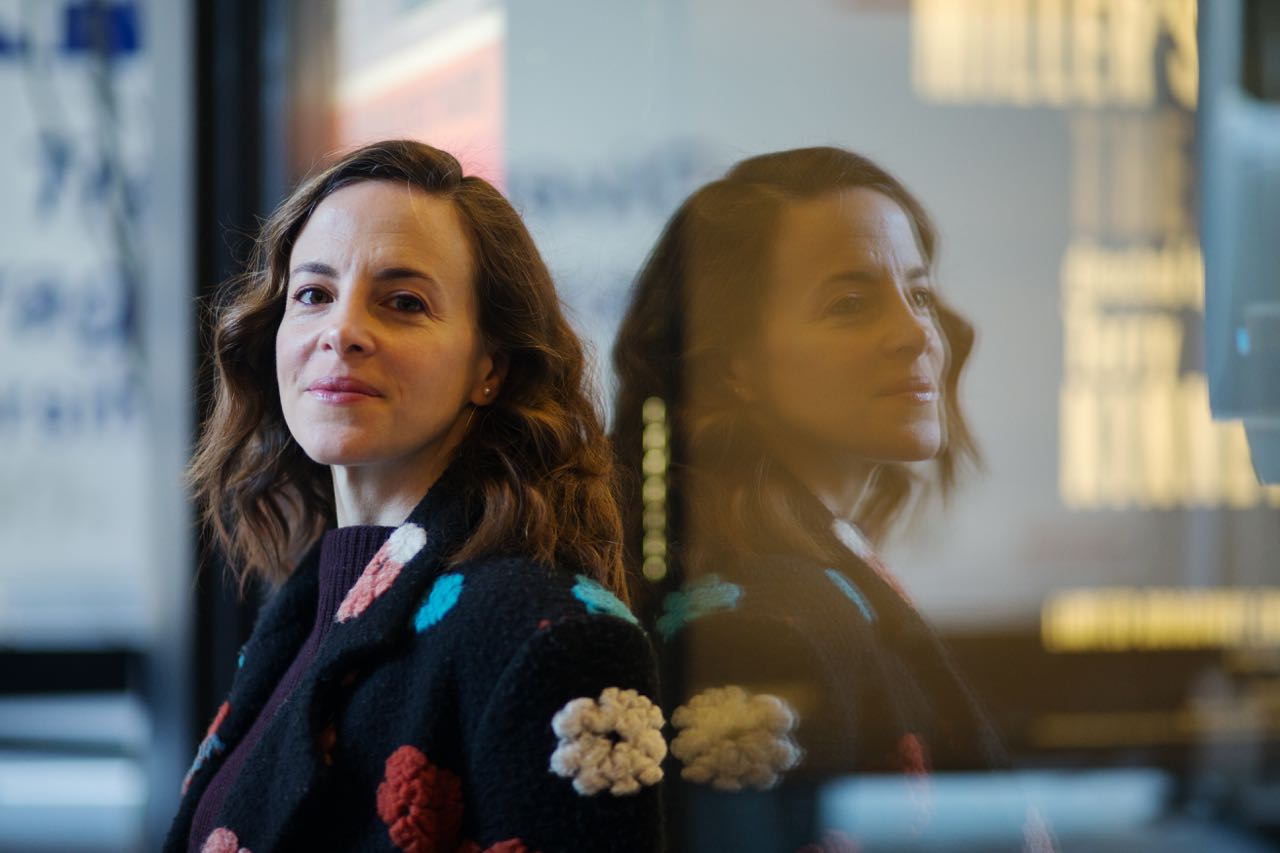
I read another interview where you talked about doing research for this. Tying into your process of doing a lot of work and then letting it go, when it’s research on specific cultural or historical things, are there are any specific tactics you have of how you incorporate that, but then also let it go a little bit, like you were saying before?
I had to make sure that I knew the stories that Sharon is talking about. Sharon has a line where she’s like, “In the Exodus story when God passed over the houses of the Israelites…” And all I knew going into it was Passover. So I read the story and I also asked people. Because it’s hard when you read the stories in the Old Testament—the Torah and the Bible—it’s so hard to unpack them on your own. So I asked someone to explain it to me. And I also talked with Steven [Levenson, playwright] and asked him really to give me a primer on the conflict in Jerusalem between Israel and the Palestinians, because I wanted it from his perspective and how Sharon is thinking about it. I think it’s the same thing where early on it’s really important to me to know the specificity of things and [for example] why is it the Exodus story? What occurs to her in that moment and why does she feel the need to bring it up? And then after a while I think the thing that always surprises me is that all the other stuff starts to fall away as I get a foothold and it really comes about in the moment. Talking about that story becomes much more about my relationship with my brother than it does my relationship with my Rabbi that I’d imagined at home. Like early on in rehearsal it’s all about the Rabbi, it’s all about the book, studying it, imagining how did I feel when I read that story for the first time, and then by the time we get into [performances], it just becomes about my brother and about what’s happening in the moment. But I’ve found that if I don’t do all that work beforehand, I never get to the other thing. I always feel like if I don’t do that work beforehand then I’m always chasing it, and I’m never allowing myself to actually be there. I know that half of this stuff is going to fall away, but I know if I don’t do it then it’s just going to haunt me the whole time.
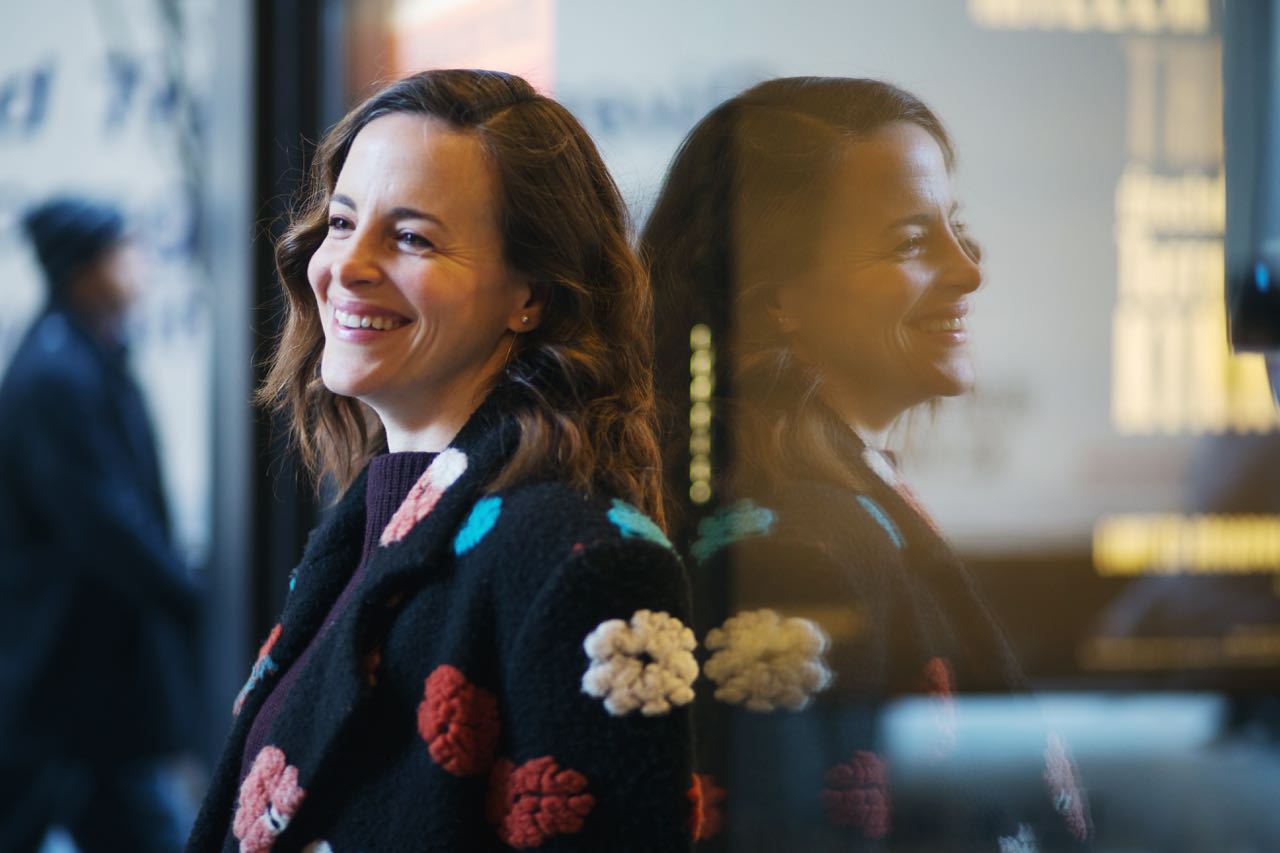
This is one of my favorite questions to ask actresses. When you’re in an industry that’s very into typecasting and telling you who you are and what roles you should go in for or what roles you shouldn’t do, how does that affect your development as an artistic person and as a human being?
I think I really struggled with it when I was younger because I did not see myself as an ingénue at all. I actually had a friend, who has been my friend since high school, and he said, “When people find out how mean you can be, it means that you’re going to have more parts.” And I actually think about it with Sharon sometimes, and I was like, “I wonder if this, Sharon, was what he was divining for me.”
Sometimes I feel like the type that I sometimes get seen as is, [I’m] either really sweet and without guile, or the opposite of that. I think that happens to a lot of actresses. You can play one or you can play the total opposite of the thing. This is something that I was thinking about—I think that in some ways I did myself a disservice in the way I thought of an ingénue, and that actually no one thinks of ingénue that way. Maybe there was a moment during Molière when the ingénue was expected to behave a certain way, but [for example] the American musical is really complicated, and the woman who is supposed to be the ingénue, a lot of times is a really tough, exciting woman, and also the love interest. Sometimes I feel like I would pigeonhole myself and I would think, “I’m playing Juliet, she’s supposed to be this certain way.” I think that we do that a lot in the theatre: craft things for imaginary audiences who are not interested in seeing something complex. It’s a cultural problem that becomes a psychological problem, so that a person thinks, “I can’t be like this.” When, really, if you look at Shakespeare’s ingénues, they’re incredibly powerful people. They’ve all been educated by their fathers, they’re all incredibly articulate women with a huge range of emotions that they know how to express. I was just at the Susan Smith Blackburn Prize and Clare Barron was awarded the prize for her play Dance Nation, and I haven’t read it, but Heidi Schreck read a monologue from it, and it’s all about this girl trying to understand her power. She’s saying, “How am I going to contain all that power?” I think that so many of the choices that we make as actors are about that. And actually your character can be really powerful and really contradictory, and the play’s going to happen no matter what. You don’t have to reign yourself in because you think that you’re the ingénue and so you have to be likable in some way. You can be your whole, full, true self and the guy in Act III still has to say that he loves you. He’s not going to change his line. The play is still going to move in that way.
The thing that I was thinking about is, I do think that something happens when you’re working on a performance that you really have to fight against—or that I have to fight against—is what you want to do versus this weird imaginary thing that you think that the audience wants you to do. And it’s not that you’re getting any feedback, the audience isn’t even in the room yet, but I think as an actor it’s a real battle between your id and your superego. The id, I think, is always the thing that’s going to be on your side as an actor. I think for a lot of actors creating characters is you pinging between those two things: between your superego and your id. Between what should I do and what do I want to do, and negotiating between the two. And maybe it’s not that one wins, but it’s that constant pinging back and forth between the two of them that creates the character and where you find the dynamic for your character.
Where do you think that internal pressure of thinking about what an audience thinks a character should be comes from? And, connecting to something else we were talking about earlier, do you think there’s a difference with that in terms of what type of piece it is?
I think it’s the recognition of archetypes in storytelling. Sometimes when I’m working on a role, it’s the first thing that I carry with me in rehearsal—what are the things that make this part recognizable and how much of that needs to be in my performance to make sense of this story. At some point in the process, though, it becomes a problem, or other times a cudgel—”I wish I were more like another actor or could fulfill more of what that character has been in the past.” And it’s always a process of letting go of those expectations and letting what is there just be. Not projecting those voices onto the audience and trusting that there is room for a lot of iterations. I do think I feel it more strongly when doing classical theatre, or for instance when I was working on Uncle Vanya with Annie [Baker] and Sam [Gold]. But it’s always there and I think it’s important to remember that it’s the voice of rehearsals and figuring out and not knowing, and not, ultimately, the voice of the audience, which sometimes you can trick yourself into thinking.
There’s a quote from an interview James Grissom did with Marian Seldes: “Students of every field arrive with an idea of what they should be, what they should become, and it is rarely in line with what I used to see as a teacher. So many people who did not see their beauty or hear their voices or understand how touching and dear their understanding could be. They wanted to be like someone who was popular at the time. They were looking in another mirror, not their own.”
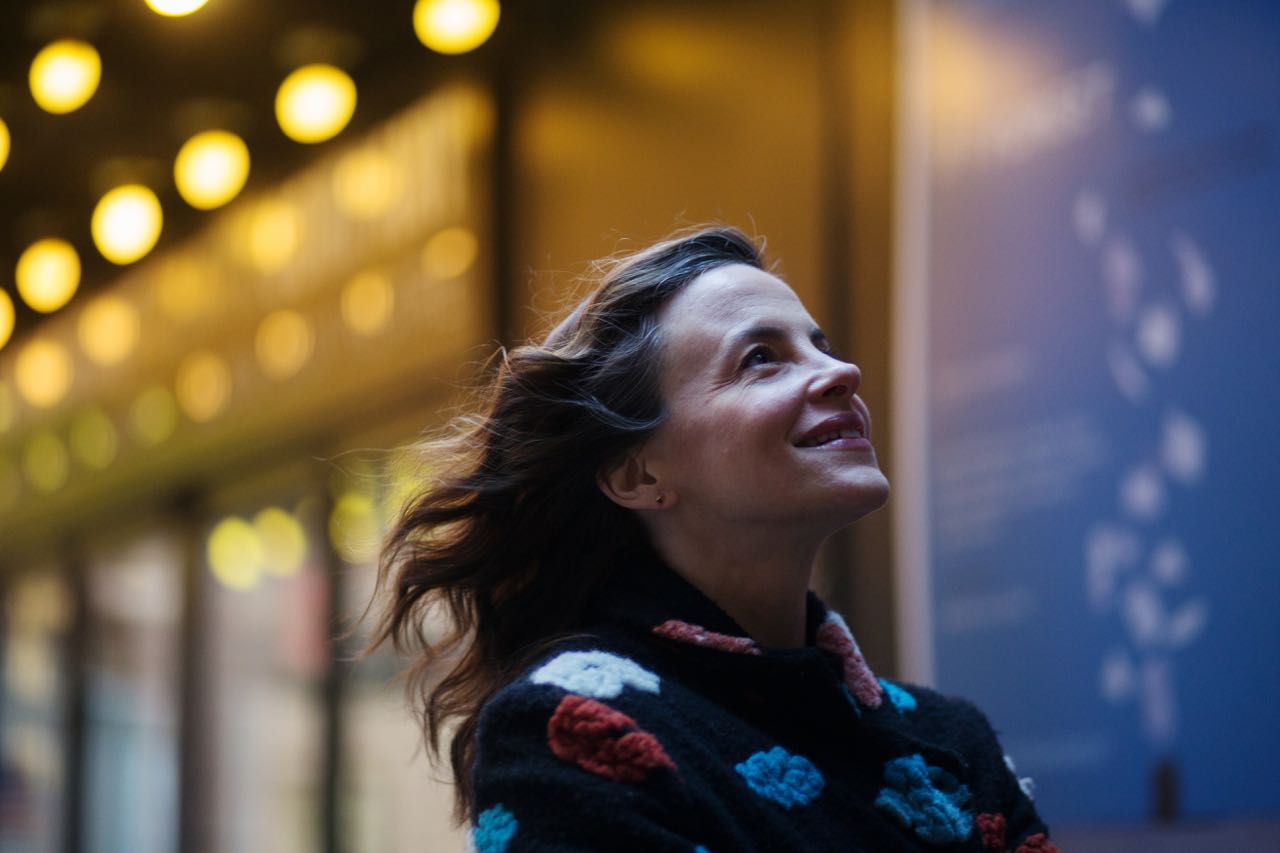
What’s something you think can be done to make things more equal for women in theatre?
I have a daughter, so I feel like helping with childcare is something that would really help. That’s the thing that I feel the most as a woman right now. It’s great the Off-Broadway contracts were renegotiated and so we’re starting to earn more money, but I’m still in the position where I pay caregivers for my daughter as much, and some weeks a little bit more, than I earn. So I’m either always in the red or it’s just evening out. I’m really lucky that I can have my daughter at work. I have my daughter at the matinee with me today. There are a lot of businesses where you can bring your children to work, and I think they find that the mothers work better and the children are happier. That’s how I feel. So I’m really glad that the Roundabout allows me to do that and bring my daughter. But I think that all the ways in which theatres, both during the rehearsal period and during performances, can help with childcare would be helpful. And produce more work by women.

